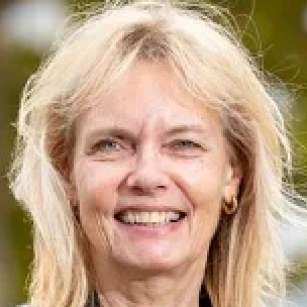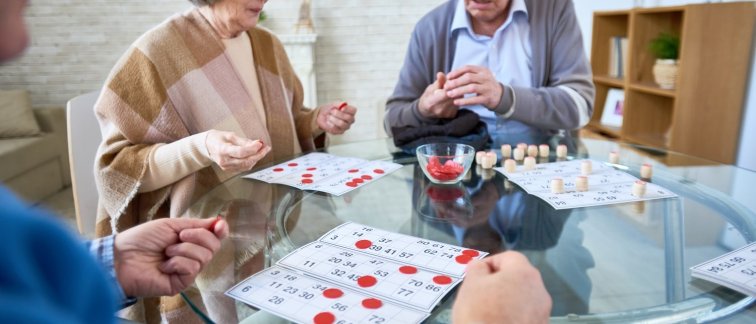Dröes: “MCSP integrates several types of support and emotion-oriented care approaches which have been proven to be effective in practice and in research in a person-centred way. Examples are: meaningful (re)creative activities, such as making or listening to music and art therapy, cognitive stimulation, social contact, conversation groups and psychomotor therapy. In addition, MSCP provides information meetings and discussion groups for the carers, and individual consultations and social activities for both.”
Funding support
Provision of MCSP, as a combined intervention on the border of care and welfare, in the developmental and evaluation phase (1993-1996) was financially supported by a health insurer in the Amsterdam region together with the local government. Later, after a national implementation study (2000-2003) the program for the persons with dementia was structurally paid by the General Act for Special Diseases (AWBZ) and since 2015 by the Social Support Act (WMO) carried out by the local government. From the beginning the support activities for the informal carers in MCSP are reimbursed by the local government.
Dröes: “Stakeholders wanted to collaborate in MCSP because of the common goal to improve the lives of people with dementia and their carers. The expectation was that MSCP is more effective, more efficient, and cheaper than former initiatives, because of better care and welfare provision and the mix of professionals and volunteers offering the support activities. Our research confirmed this.”
Recognition for proven effective intervention
In 2014, MCSP was first recognized as an effective intervention by the Recognition Committee on Effective Interventions in Long-Term Care. In 2021, the intervention was re-recognized with the highest level of evidence for effectiveness. Also in 2021, the intervention was included in the Ministry of Health, Welfare and Sport's National Dementia Strategy 2021-2030. This states that by 2030, 80% of people with dementia in the Netherlands should be able to use a meeting center in their neighbourhood or region.
International implementation and validation of MCSP
From 2014-2017, the MEETINGDEM project, funded by the EU Joint Programme Neurodegenerative Diseases research, was carried out by Amsterdam UMC (location VUmc) in collaboration with universities and clinical research institutes in Italy, Poland and the UK. The project aimed to investigate the adaptive implementation of the Dutch MCSP and to validate MCSP in those three EU countries.
Dröes: “MCSP has turned out to be effective for people with dementia and carers in adapting to living with dementia. In the Dutch studies this was demonstrated by less behavior and mood problems and higher self-esteem of the people with dementia and less experienced burden and more sense of competence of their informal carers, and delay of nursing home admission. In the MEETINGDEM project people with dementia experienced more quality of life than people who received usual care, their carers felt less burdened, and the program proved cost-effective compared to usual care.” The MEETINGDEM project also proved that MCSP is successfully transferable across countries. Nowadays, there are more than 300 Meeting Centers worldwide and another 300 less intensive Meeting points based on the MCSP model, supporting more than 15.000 people with dementia and their carers on a yearly basis.
Sharing effective community-based support in dementia
Dröes: “To best facilitate the rollout of the Meeting Centers, we developed various implementation materials (guide to set up a Meeting Centre, online pioneer courses, films, books), annual courses for personnel of Meeting Centres, created a helpdesk, an informative website, a newsletter, a national platform of Meeting Centres and a yearly national study meeting for personnel of Meeting Centers.”
To stimulate the further global dissemination of MCSP, the MEETINGDEM-Network was launched in 2018. The network consists of Meeting Centers in the different countries in Europe and beyond (Italy, The Netherlands, Poland, Spain, United Kingdom, Aruba, Australia, Japan, Surinam, Singapore and Zimbabwe), and the universities and care and welfare organizations that are involved in the development or exploitation of these Meeting Centers. The Network has a website, publishes a yearly newsletter, organizes online meetings for international exchange of experiences and stimulates collaborative research in post-diagnostic care.
Learnings in impact creation

Do’s:
- Take the perspective of your target group(s)
- Involve relevant stakeholders from the start (including funding organizations like local government and health insurers
- Be patient! Many care and welfare organizations find it difficult to start and implement innovations, also because of financial risks.
- Translation of knowledge to practice is a precondition for further implementation and dissemination and to improve health care practice
- Develop specific implementation materials and training and undertake specific dissemination activities for different stakeholders to translate and transfer the developed knowledge for practice
Don’ts:
- Don’t expect that the results of your research will disseminate automatically;
- Don’t develop health services/interventions/tools without investigating if there is a need for this in the target group
- Don’t stop your dissemination and implementation activities after just one action. They need to be repeated as there is a great turnover of professionals in all sectors.

